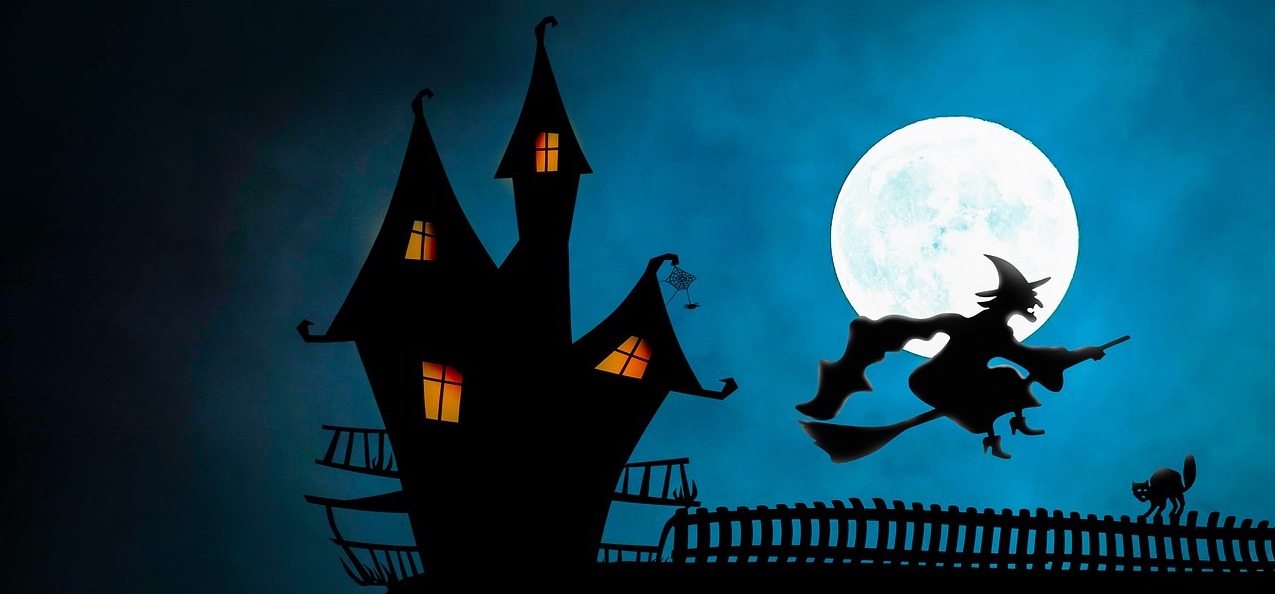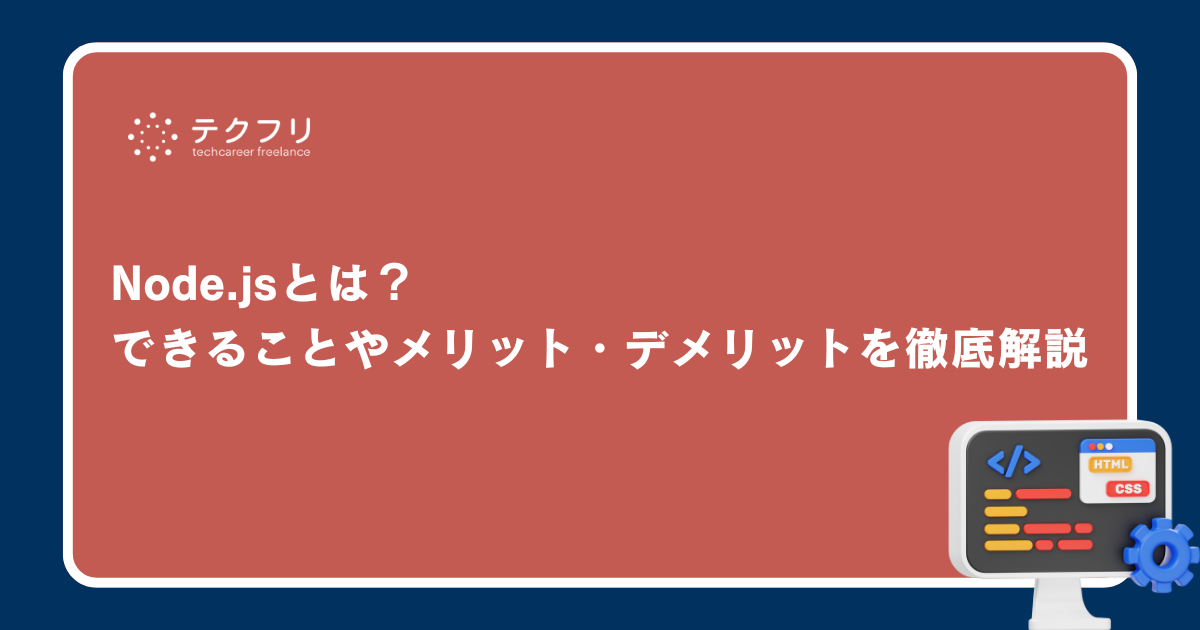It is October, the Halloween season! It is probably the second popular holiday known around the world after Christmas. It is also a spooky but fun holiday loved by both the young and the old alike. As the holiday gets more and more commercialized each year, let’s catch up with some of the historical facts about Halloween this time.
10月はハロウィンシーズンです! それはおそらく、クリスマスに続いて世界中で知られている2番目の人気のある休日です。 また、若い人も年上の方も同じように愛される不気味だが楽しい休日です。この休日が毎年商業化されるにつれて、今回はハロウィーンに関するいくつかの歴史的事実に追いつきましょう。
*Spooky place: 気味の悪い場所
*Spooky noise: 不気味な物音
*Spooky look: 不気味な表情
Commercialize: 営利化する
Ex: This product is about to be commercialized soon.
この製品はまもなく商品化されます。
*Commercialize one’s patents: 特許を商品化する
*Commercialize an invention: 発明を商品化[営利化]する
Historical: 歴史の[に関する]、歴史上の[存在した・起こった]
*A historical person: 実在した人物
*Historical circumstance: 歴史的な事情
*Historical change: 歴史的変化
<The origins of Halloween ハロウィーンの起源>
We all know that Halloween falls on October 31of every year. Today, people’s image about Halloween is full of monsters, horror and scary things. However, the holiday is really about the changing of the season and be prepared for the dormancy of nature. The origin of Halloween can be traced back to about 2000 years ago of a Celtic festival held around October 31st called Samhain (sow-in). The Celtic people celebrated their New Year on the 1st of November, which they believe is the end of summer and the harvest season.
みんなさんご存知の通り、毎年10月31日はハロウィーンです。今日、ハロウィーンに関するイメージは、モンスター、恐怖、怖いものばかりです。しかし、この休日は実際、季節の変化についてであり、自然の休眠に備えるためのお祝いです。 このハロウィーンの起源は、約2000年前の10月31日頃に開催されたSamhain(sow-in)と呼ばれるケルトの祭りにさかのぼることができます。 ケルト人は、11月1日に新年を祝いました。彼らは、この時期は夏の終わりと収穫期の終わりであると信じています。
Ex: The origins of many English words can be traced back to Latin and other European languages.
多くの英語の単語の起源は、ラテン語や他のヨーロッパ言語にまでさかのぼることができます。
Dormancy:休眠、休止
*Dormancy length: 休眠期間
*Dormancy mechanism: 休眠機構
Trace:〔目に見える〕跡、足跡、形跡 〔人がいたことや物があったことの〕手掛かり、証拠
Ex: The traces of water have been identified on Mars by the scientists.
科学者は火星に水の痕跡を確認しました。
Ex: Unfortunately, we could not find any trace on the suspect yet.
残念ながら、犯人の手掛かりはまだつかめていない。
*Trace amount: 微量
Harvest:〔作物などの〕収穫(期)、収穫高
Ex: Hope we could have a good harvest this year!
今年も良い収穫ができるように願っています!
*Harvest a crop: 作物を収穫する
*Harvest brown: 中間の濃さの茶色
*Harvest condition: 《農業》作況
*Harvest grain: 穀物を収穫する
During the time when technology was still undeveloped, people usually were afraid of the coming of the long, harsh winter, and usually associated it with darkness and human death. The Celtic people believe the night of October 31st is when the boundary between the dead and the living becomes blurred, and the time for ghosts of the dead return to earth.
Some scholars believe that because the “All Saints’ Day (All Hallows’ Mass)” celebrated on November 1st in the Scottish culture which is so close to Samhain on the calendar that they influenced each other, and eventually combined into the celebration called Halloween today (The word “Halloween’en” means “Saints’ evening”) .
昔、テクノロジーがまだ未開発の時代、人々は通常、長く厳しい冬の到来を恐れ、通常は暗闇と人間の死に関連付けられていました。 ケルト人は、10月31日の夜は死者と生者の境界がぼやけ、死者の幽霊が地球に戻る時だと信じています。
一部の学者は、スコットランドの文化で11月1日に祝われた「オールセインツデイ(All Hallows ‘Mass)」が互いに影響を及ぼし、最終的には今日のハロウィーンと呼ばれる祭典になりました。 (「Hallowee’en」という言葉はスコットランド文化で「聖人の夜」の意味があります)。
Ex: Judges gave John some harsh criticisms about his performance.
裁判官はジョンのパフォーマンスについて厳しい批判を与えました。
*Harsh backlash: 厳しい反発
*Harsh blow: 大打撃
*Harsh braking: 急ブレーキ
*Harsh climate: 厳しい気候
*Harsh environment: 過酷な環境
*Harsh economic condition: 厳しい経済状況
Associate: 結び付けて考える、関連付ける、関連させる
Ex: There are several suspects are associated with this case.
このケースにはいくつかの容疑者が関係しています。
Ex: There are proves that people can associate smells, sounds with their past memories.
人は匂いや音を過去の記憶と関連付けることができるという証拠があります。
Boundary: 境界(線)、限界、限度
Ex: Here is the boundary between the two nations.
これが両国の境界です。
Ex: Athletes are always challenging the physical boundary of human beings.
アスリートは常に人間の肉体的境界に挑戦しています。
Eventually: 最終的に(は)、結局(のところ)
Ex: The matter will eventually come to an end.
問題は最終的に終わります。
Ex: What I dreamed of eventually become reality.
私が夢見たものは、最終的に現実になります。
<Traditions of Halloween ハロウィーンの伝統>
The celebration of Halloween has been spread around the world started in America. However, the Halloween culture in America also was influenced by the combination of many European cultures itself and eventually became the Halloween culture we all know today.
ハロウィーンのお祝いはアメリカから始まって世界中に広まりました。 しかし、アメリカのハロウィーン文化は、多くのヨーロッパ文化自体の組み合わせの影響も受け、最終的に私たちが今知っているハロウィーン文化になりました。
Ex: You don’t understand how fast could the information spread on the Internet.
情報がインターネット上でどれほど速く拡散するのか理解できませんね!
Ex: Rashes spread all over my back!
発疹が背中全体に広がりました!
海外に移住する人々について、およそ100万人以上アメリカに渡航しました。当時の条件と地理から見ると、大半の移民はアメリカの東側に移住しました。今のニューヨーク州とその隣の州は大量のアイルランド系の人がいます。当時の移民の一部は銀行家や商売人、政治家として権利者、大金持ちになりました。これらの人々の子孫たちは今でもアメリカの国政に大きな影響を与えています。多くのアイルランド系移民は自国の文化と伝統をアメリカに持ち込み、その一つがHalloweenです。
<Apple Bobbing アップルボビング>
This is might be a rarely known Halloween culture outside of Europe. This is a tradition influenced by the Romans. Romans traditionally commemorated the passing of the dead in late October. They also honor Pomona, the goodness of fruit and trees in this month. The symbol of Pomona is the apple. The two cultures were very likely incorporated into Samhain and became the apple bobbing culture we know today.
これはヨーロッパ以外ではめったに知られていないハロウィーンの文化かもしれません。 これはローマの影響を受けた伝統です。 ローマ人は伝統的に、10月下旬に死者の死を記念していました。 彼らはまた、10月に果物と木の女神Pomona(ポマナ)を称えます。 Pomonaのシンボルはリンゴです。 この2つの文化は、おそらくサウィン祭に融合して、私たちが知っているリンゴのボビング文化になりました。
Apple bobbing:手を使わず、口で洗面器の中ある林檎を噛む遊びです。
Pomana:ローマ文化で果物と木の女神です。
Commemorate: 〔特別な出来事などを〕祝う、記念する
Ex: People gathered to commemorate the founding father’s death.
建国の父の死を記念して人々が集まりました。
*Commemorate the victims: 犠牲者を追悼する
<Jack-o’-lanterns ジャックオーランタン>

The famous Halloween pumpkins come from popular Irish-Christian folklore. A man named Jack encountered a devil playing pranks on him. Jack eventually strikes a bargain that Satan can never claim his soul. After a life of sin, Jack was refused to enter Haven when he dies. He was also refused to enter Hell due to his bargain with the devil. The devil only gave him a live coal from hell. The weather was cold, and Jack had to place the coal in a hollowed-out turnip to prevent the fire from going off. Since then, Jack and his lantern have been roaming around looking for a place to rest.
有名なハロウィーンのカボチャは、アイルランドキリスト教の人気の伝承から来ています。 ジャックという名前の男は、悪魔がいたずらをしているのに遭遇しました。 ジャックは最終的にサタンが自分の魂を自由にすることはできないとい取引を締結しました。 罪だらけの人生を過ごした後、ジャックは死ぬとヘブンに入ることを拒否されました。 彼はまた、悪魔との交渉のために地獄に入ることも拒否されました。 悪魔は彼に地獄から生炭を与えただけです。 天気は寒く、ジャックは火を消さないために、カブに石炭を入れなければなりませんでした。 それ以来、ジャックと彼のランタンは休憩場所を探して歩き回っています。
*Prank call: 迷惑[いたずら・嫌がらせ]電話
*Nasty prank: 悪質ないたずら
*Sick prank: 悪趣味ないたずら
*Silly prank: ばかげた[くだらない]いたずら
Strike:
〔拳や道具を使って〕~を突く[打つ]
〔災害・病気・不穏な気持ちなどが〕~を襲う
〔契約などを〕取り決める、締結する
Ex: A stranger struck him hard at the back with a bat.
見知らぬ人がバットで彼を後ろで激しく打った。
Ex: A typhoon struck this area with harsh rain and wind.
台風が激しい雨と風でこの地域を襲いました。
Ex: At last a good deal was struck.
とうとう取引が行われました
Bargain:安売り、格安品、(売買)契約
Ex: I think we’ve got a great bargain.
うまい買い物をしましたね。
Ex: It’s a bargain!
それで決まった!
Claim: 〔事実として~を〕主張する、〔命を〕奪う、〔賞品などを〕獲得する
Ex:She claims that what she said is a hundred percent true.
彼女は自分が言ったことは100パーセント真実だと主張しています。
Ex:The big fire claimed so many lives.
大火は非常に多くの命を奪いました。
Ex:I claimed the $1000 prize on a jackpot!
ジャックポットで$ 1000の賞金を獲得しました!
Coal:石炭
Hollow:中が空洞の、中に隙間がある、〔人が〕中身のない
Ex: The politician’s speech is just full of hollowed excuses.
政治家のスピーチは、くぼんだ言い訳だらけです。
Ex: She is just a hollow and uneducated person!
彼女は虚栄心が強く無教養な女性です。
*Hollow architecture: 中空構造
Turnip: 《植物》カブ
Roam: うろつく、〔場所を当てもなく〕散策する
Ex: I don’t have any particular plan of the trip; just roaming about the streets in this city.
旅行の具体的な計画はありません。ただこの街で歩き回っています。
Ex: Long time ago, herds of buffalo roamed the plains.
昔、水牛の群れはこの平原を歩き回っていました。
When this culture was brought to America, the people here chose pumpkins than turnips which are much plentiful in America and are easier to carve than turnips.
この文化がアメリカにもたらされたとき、アメリカ人はカブよりカボチャを使いました。カボチャはアメリカにたくさんあり、カブよりも彫りやすいからです。
Other similar traditions are that people would lit candles along the walkway of their houses for the deceased relatives to find their way home. Halloween is the time for people to communicate with people who pass away.
他の同様の伝統は、故人が家に帰る道を見つけるために、人々が家の通路に沿ってろうそくに火をつけるというものです。 ハロウィーンは、亡くなった人とコミュニケーションをとる日です。
*The deceased: 故人
plentiful:豊富な、十分な、たくさんの
*Plentiful crop:豊作
*Plentiful harvest: 豊作
*Plentiful rainfall: 豊富な降雨量
*Plentiful resources: 豊富な資源
*In plentiful supply: 豊富に供給されている
<Trick or treating トリックオアトリート>
Children’s favorite custom of Halloween. Trick-or-Treating probably dates back to the early All Souls’ Day in England. The poor citizens would pray for wealthy families’ dead relatives; in return, the families will give them pastries called “soul cakes” in return for their prayers. This custom also was brought to America by the immigrants during the 19th century.
これは子供たちが大好きなハロウィーンの習慣です。 Trick-or-Treatingは、おそらく英国のオールソウルズデーに遡ります。昔は貧しい市民は裕福な家族の死んだ家族のために祈るでしょう。お礼として、家族は「ソウルケーキ」と呼ばれるペストリーを彼らに与えます。この習慣は、19世紀に移民によってアメリカにもたらされました。
*Pastry cook: お菓子職人
However, it was later evolved into a form of children playing pranks and asking for candies from door to door with parades and town-wide parties being held throughout America. The pranks went crazy later. Fortunately, the town leaders were able to limit vandalism and transformed the Halloween into a holiday directed to young children in the 1950s.
しかし、その後、いたずらをして子供たちにキャンディーを求めてパレードや町全体のパーティーがアメリカ全土で開催されるという形に発展しました。 いたずらは後に狂ったことになりました。幸いなことに、町のリーダたちは破壊行為を制限することができ、1950年代にハロウィーンを幼い子供向けの休日に変えました。
Ex: All lives evolved from a simple form of cell.
すべての生命は、単純な形の細胞から進化しました。
*evolve a brand-new business model: 真新しいビジネスモデルを進化させる
*evolve a relationship with: ~との関係を発展させる
Parade:パレード、行進する
*Parade down a street: 通りを練り歩く[行進する]
Fortunately:幸いにも
Ex: Fortunately, no one was hurt in this accident.
幸いなことに、この事故で負傷した人はいませんでした。
Ex: Fortunately for us, that wasn’t the case.
私たちにとって幸いなことに、そうではありませんでした。
*Unfortunately: 不運[不幸]にも[なことに]
Vandalism:〔故意のまたは悪意ある〕他人の所有物[公共物]の破損、〔美しいものに対する〕破壊行為
*Ecological vandalism: 生態破壊
*Vandalism to a vehicle : 車両への破壊行為
<Costume culture 変装文化>
Halloween costume party is a major thing in Halloween. Everyone loves to dress up! Shibuya’s Halloween dress-up party is also getting more and more popular throughout the years. The costume culture also came from the Celtic culture in which they believe that ghosts came back to the living world in October, and to avoid being recognized by these ghosts, people would wear masks when they have to leave their homes after dark. The bad spirits would mistake them for fellow spirits. Today, scholars believe that it was a way for people to tackle the harsh winter and the fear against darkness during the old times. The Celtic people would also place a bowl of food outside of their doors to appease the ghosts from entering the houses. This culture later combined with trick-or-treating when it came to America.
ハロウィーンコスチュームパーティーは、ハロウィーンのメインです。 誰もがドレスアップが大好き! 渋谷のハロウィーンドレスアップパーティーも年々人気が高まっています。このコスチューム文化はまた、10月に幽霊が人間の世界に戻ってきたと信じているケルト文化から来ました。そして、これらの幽霊に認識されることを避けるために、人は夜、家を出なければならないときにマスクを着用します。悪霊は彼らを仲間の霊と間違えますから。 今日、学者は、それが人が過酷な冬と昔の暗闇に対する恐怖に取り組むための方法であると信じています。ケルト人々はまた、幽霊が家に入るのをなだめるためにドアの外に食べ物を置くでしょう。この文化は後にアメリカに来たときに、トリックオアトリートと組み合わされました。
*Fellow alumni: 同窓生
*Fellow being: 人間同士
*Fellow citizen: 同郷の市民
*Fellow classmate: クラスの仲間
Tackle: 〔問題などに〕取り組む
Ex: John decided to tackle this problem by himself.
ジョンは自分でこの問題に取り組むことにしました。
*Tackle the issue head-on: 問題に真正面から取り組む
*Tackle a fundamental problem: 根本的な問題に取り組む
*Tackle a global challenge: グローバル(な)課題に取り組む
Appease: 〔人を〕なだめる; 〔苦痛・怒りなどを〕和らげる; 〔欲求などを〕満たす; 〔争いなどを〕鎮める
*Appease citizens’ anger: 市民の怒りを和らげる
*Appease public criticism: 国民批判を鎮める
*Appease someone’s anxiety: (人)の心配[不安・懸念]を和らげる
*Appease God’s wrath: 神の怒りを鎮める
*Appeasement: 妥協策
<Matchmaking マッチメイキング>
This is probably one of the lesser-known rituals of Halloween. This tradition also originated in Europe where young women would use nuts or apple-peels to identify their future husbands. This tradition is no longer practiced during Halloween since today’s Halloween is more for young children and for families to celebrate together.
これはおそらく、ハロウィーンのあまり知られていない儀式の一つです。若い女性が将来の夫を知るためにナッツやリンゴの皮を使って占いを行うの伝統はヨーロッパで始まりました。今日のハロウィーンは幼い子供や家族が一緒に祝うためのものであるため、この伝統はもはやハロウィーンの間に実践されません。
*Matchmaking site: 出会い系サイト
Peel: 〔表面を覆う皮や膜が〕むける、はがれる
*Peel a potato: ジャガイモの皮をむく
*Peel away: 〔表皮などが〕剥がれる、剥がれ落ちる
<Halloween is actually about receiving and giving ハロウィーンは、実際に受け取ることと与えることに関わります>
One thing I found pretty interesting about the difference of Halloween between the West and the East is that it is more like a day for people to just dress up in costumes they usually wouldn’t wear normally and taking photos. Kids get to eat many candies on that day (Elementary schools and kindergartens in Taiwan host Halloween parties and giving out candies to young children in recent years) in Asia.
西洋とアジア文化のハロウィーンの違いについて非常に興味深いと思うことの1つは、アジアで人が普段着ることのない衣装を着て写真を撮るだけの日に近いということです。その日も、子供たちは多くのお菓子をもらえる日です。(近年、台湾の小学校と幼稚園は、ハロウィーンパーティーを主催し、子供にキャンディーを配ります)。
Of course, I am not saying that people in western countries don’t do these activities. They do! However, Halloween is also a festival for them to relate to the deceased people, to commemorate those who passed away. Young children are the target audience of this festival where they are not only getting candies from adults but it’s also a time for them to learn about giving. In America, many elementary schools will bring children to participate in community services or to host fundraising and other charity works to teach them the value of helping people. Yes, they are not doing pranks instead of helping those who are in need.
もちろん、私は西洋諸国の人々がこれらの活動をしないと言っているのではありません。 彼らもやる! しかし、ハロウィーンは、亡くなった人々を追悼するために、亡くなった人々に関係する祭りでもあります。 幼い子どもたちは、この祭りのターゲットであり、大人からキャンディーをもらうだけでなく、与えることについて学ぶ時間でもあります。 アメリカでは、多くの小学校が子供たちをコミュニティサービスに参加させたり、募金活動や他の慈善事業を開催して、人々を助けることの価値を教えます。 はい、彼らは困っている人を助けます、いたずらをしません!
*Fundraising activity: 募金集めの活動
*Fundraising bash: 〔政党などの〕資金集めの盛大なパーティー
Charity: 慈善(行為[事業))、施し物
*Charity auction: 慈善オークション
*Charity bazaar: 慈善市
*Charity bin: 寄付箱
*Charity concert: 慈善音楽会
*Charity donation: 慈善寄付
*Charity drive: 慈善募金活動
まとめ
According to statistics, Americans spend an estimated $6 billion dollars annually on Halloween. It is the second-largest commercial holiday after Christmas. Halloween to them is about dress-up, candies, supernatural, superstition and of course a charity spirit!
統計によると、アメリカ人はハロウィーンで年間60億ドルを費やしています。 それはクリスマスに続いて2番目に大きい商業休日です。 彼らにとってハロウィーンは、ドレスアップ、キャンディー、超自然、迷信そしてもちろんチャリティー精神です!
*Annual accounting: 年次決算
*Annual accounting period: 年度会計期間
supernatural: 超自然の、信じられないほどの
*Supernatural events (phenomena): 超自然現象
*Supernatural forces: 超自然の力
*Supernatural happenings: 神秘的な出来事
*Supernaturalism: 超自然主義
*Super naturalist: 超自然論者
superstition: 〔不合理な〕迷信、盲信
Ex: Mary is a firm believer of superstition.
マアリーは迷信を固く信じている人です。
*Local superstition: 地元に伝わる迷信
*Unfounded superstition: 根拠のない迷信
*Widespread superstition: 広く知られる迷信[俗説]



















